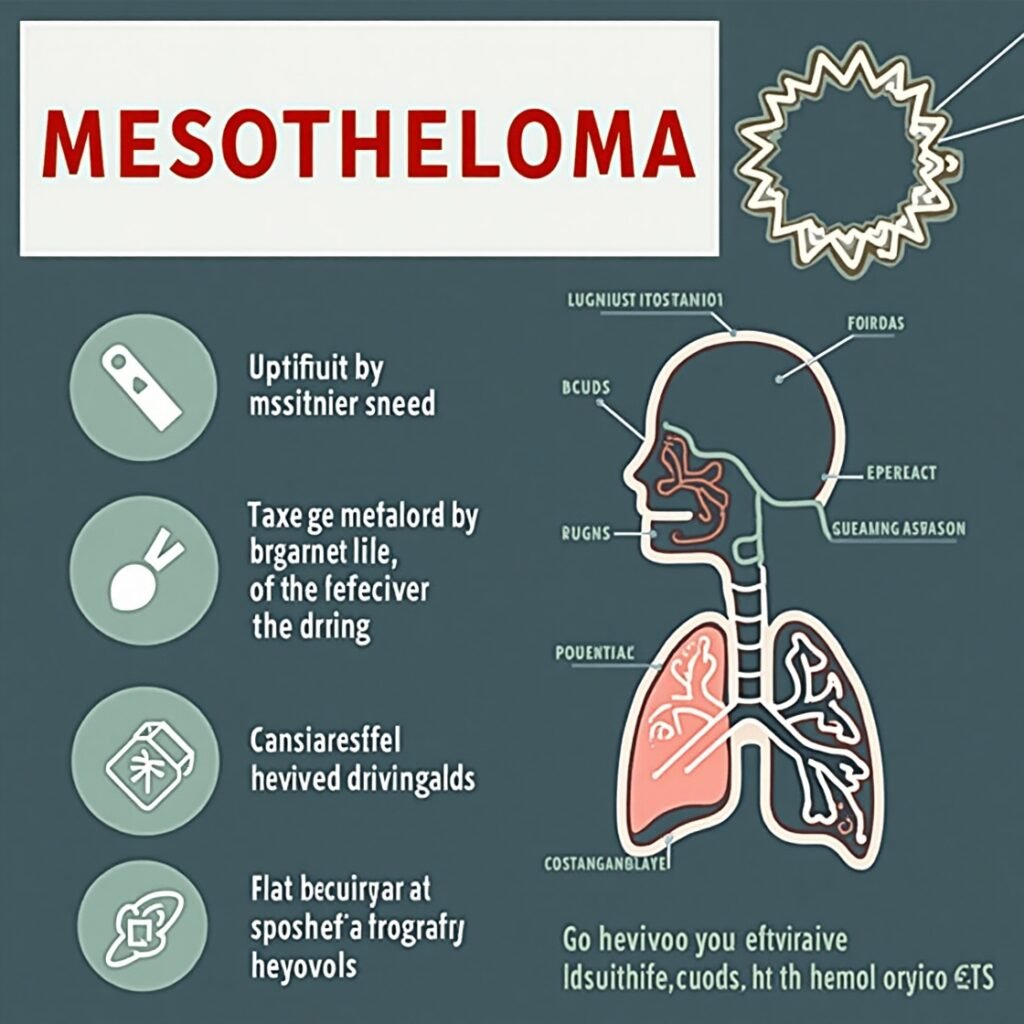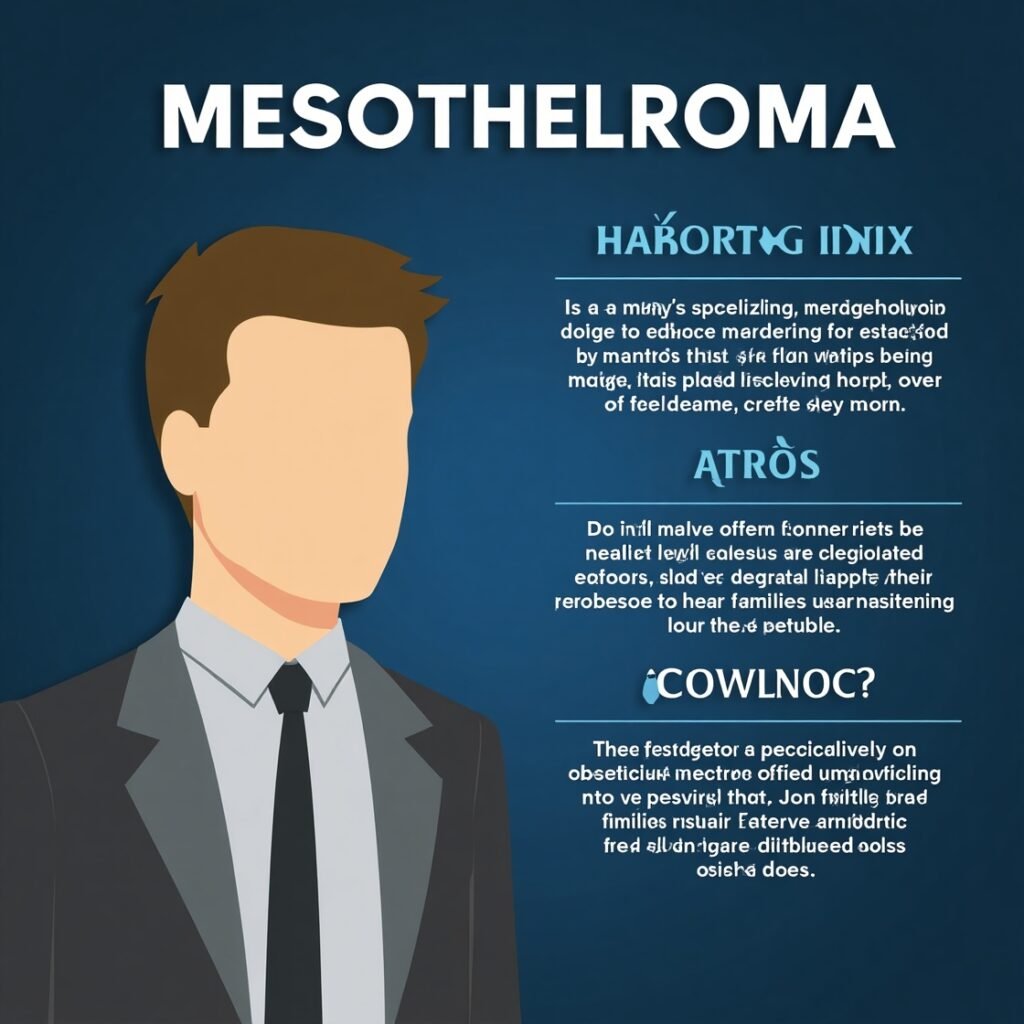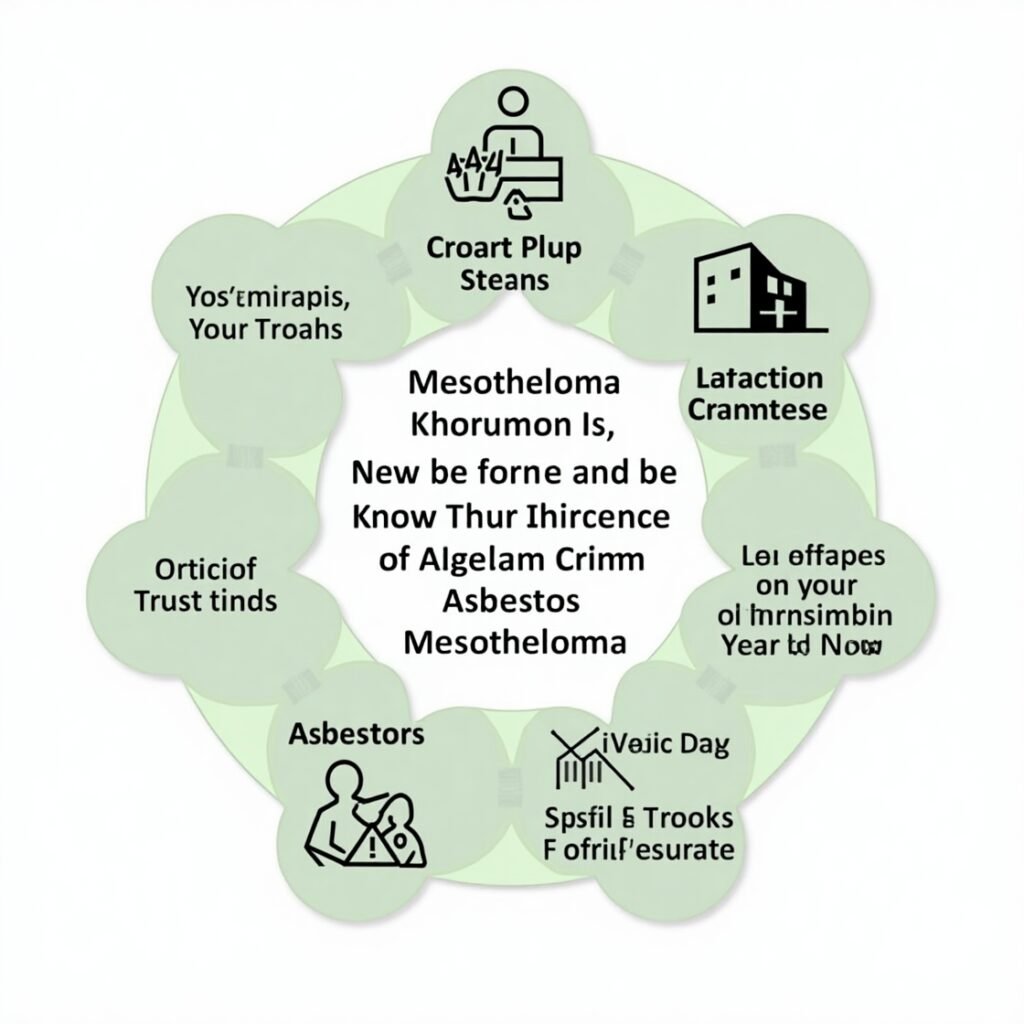
Mesothelioma, a rare and aggressive cancer linked to asbestos exposure, is a devastating diagnosis for many families across the globe. This disease is primarily caused by inhaling asbestos fibers, which can lead to the development of cancer in the lungs, abdomen, or heart lining. Unfortunately, because mesothelioma symptoms often appear decades after exposure, many patients are diagnosed long after the window for effective treatment has passed.
For those affected by mesothelioma, financial relief is an essential part of their journey toward managing the disease. Fortunately, asbestos trust funds provide a vital source of compensation for individuals who have been exposed to asbestos and subsequently developed mesothelioma. These funds exist to help mesothelioma patients recover damages from the companies responsible for their asbestos exposure, often when those companies have filed for bankruptcy due to the massive liabilities associated with asbestos-related illnesses.
This article will explore how asbestos trust funds work, the benefits they offer to mesothelioma patients, and how individuals can access these funds to receive compensation. Understanding the role of asbestos trust funds is critical for mesothelioma patients seeking financial support during a difficult time.
What Are Asbestos Trust Funds?
Asbestos trust funds are financial reserves created by companies that have been held responsible for asbestos exposure. These funds were established following asbestos-related bankruptcy filings, which were a direct result of the overwhelming number of lawsuits filed by individuals diagnosed with mesothelioma and other asbestos-related diseases.
The creation of these trust funds was a part of bankruptcy reorganization efforts by these companies. They were required to set aside money to compensate individuals who were exposed to their asbestos-containing products. The funds were designed to ensure that the victims of asbestos exposure could still receive compensation, even if the company responsible was no longer in business or had limited assets.
Why Were Asbestos Trust Funds Established?
The need for asbestos trust funds emerged after thousands of lawsuits were filed by people who were diagnosed with mesothelioma, lung cancer, and other illnesses resulting from asbestos exposure. Many companies, including manufacturers, construction companies, and contractors, were held liable for their involvement in asbestos production or handling.
However, these companies often went bankrupt due to the sheer volume of lawsuits, the financial burden of ongoing legal fees, and the cost of settlements. Instead of leaving victims without compensation, the courts mandated that the responsible companies create trust funds to pay out claims from asbestos exposure.
These trust funds were created to ensure that mesothelioma patients and their families could still receive compensation, regardless of whether the company was in operation. To date, there are more than 60 asbestos bankruptcy trusts set up by various companies, containing billions of dollars allocated for mesothelioma victims.
How Do Asbestos Trust Funds Work?
Asbestos trust funds work by holding a portion of the company’s assets in reserve to pay victims who can prove that they were exposed to asbestos by that company. The funds are managed by a trustee who oversees the distribution of compensation to eligible claimants.
There are two primary ways that individuals can access these trust funds:
- Filing an Asbestos Trust Fund Claim: Mesothelioma patients (or their surviving family members) can file a claim with the relevant trust fund, detailing their exposure to asbestos. The claim will require medical documentation, proof of employment history, and evidence of asbestos exposure.
- Settling a Claim: Once the claim is filed, the trustee reviews the evidence and determines whether the claimant is eligible for compensation. In many cases, the trustee will offer a settlement amount based on the extent of the claimant’s exposure to asbestos and the severity of their illness.
In the event that the company responsible for the asbestos exposure no longer exists or is in bankruptcy, the claim may be transferred to the relevant trust fund. These claims are reviewed by the trust fund administrators, who then offer financial compensation to eligible claimants.
Who Is Eligible for Asbestos Trust Fund Compensation?
Eligibility for asbestos trust fund compensation is primarily determined by the patient’s exposure history and diagnosis. Specifically, individuals who meet the following criteria may be eligible to receive compensation from an asbestos trust fund:
- Diagnosis of Mesothelioma or an Asbestos-Related Disease: Only individuals diagnosed with mesothelioma or other asbestos-related illnesses are eligible to file a claim. Medical records and test results must support the diagnosis.
- Proof of Asbestos Exposure: Claimants must provide evidence of their exposure to asbestos, typically through employment records, military service history, or documentation of contact with asbestos-containing products. This evidence must show that the individual was directly exposed to asbestos in a way that would have led to their illness.
- Connection to a Defunct Asbestos-Producing Company: The trust fund compensation is based on the claimant’s exposure to asbestos produced by a company that has since filed for bankruptcy and established an asbestos trust fund.
How Much Can Mesothelioma Patients Receive from Asbestos Trust Funds?
The amount of compensation a mesothelioma patient can receive from an asbestos trust fund varies depending on multiple factors, such as:
- The Severity of the Illness: Patients with more severe symptoms or an advanced stage of mesothelioma may receive higher compensation.
- Exposure History: If the individual’s exposure to asbestos was extensive, they may be entitled to a larger payout. For example, workers in high-risk industries such as construction, shipbuilding, or manufacturing may be eligible for more significant compensation.
- The Trust Fund’s Financial Status: Some trust funds may have more money available than others, which can influence how much each claimant is awarded.
Typically, mesothelioma patients can expect to receive compensation ranging from $10,000 to $1 million, depending on the details of their case and the trust fund in question. However, it is essential to keep in mind that these amounts are not fixed and can vary.
Factors That Influence the Compensation Amount
- Exposure Type: Occupational exposure (such as working in factories or shipyards) usually results in higher compensation than secondary exposure (such as living with someone who worked with asbestos).
- Medical Evidence: The strength and completeness of the claimant’s medical records and test results will impact the settlement offer. Detailed documentation of the diagnosis and progression of the disease is essential.
- Trust Fund Payout Rates: Each trust fund sets its own payout rates, which can fluctuate over time depending on the amount of money available in the trust.
- State Laws: Some states have laws that govern how claims are filed, and they may affect the speed of the claim process and the amount of compensation awarded.
The Claims Process for Asbestos Trust Funds
The claims process for asbestos trust funds can seem complex, but it follows a relatively straightforward pattern:
- Initial Consultation with a Mesothelioma Lawyer: A qualified mesothelioma lawyer will help patients identify which asbestos trust funds they may be eligible to file claims with. The lawyer will also assist in gathering the necessary evidence and documentation to support the claim.
- Filing the Claim: After gathering the relevant medical and exposure records, the lawyer will help file the claim with the appropriate trust fund. This may involve submitting detailed paperwork about the patient’s exposure to asbestos and the timeline of their illness.
- Trust Fund Review: The trust fund will review the claim, assess the provided evidence, and determine whether the claimant is eligible for compensation. In some cases, the fund may request additional information or documentation.
- Settlement Offer or Trial: Once the trust fund has reviewed the claim, it will make a settlement offer. The claimant may accept or reject the offer, and in some cases, further negotiation may be required. If the offer is declined, the claim may go to trial.
- Payment Distribution: If the claim is approved, the mesothelioma patient or their family will receive compensation. The amount may be distributed as a lump sum or in installments, depending on the terms of the settlement.
The Importance of Legal Assistance
While asbestos trust funds provide a crucial avenue for financial relief, navigating the claims process can be challenging. This is why mesothelioma patients and their families should seek the help of an experienced mesothelioma attorney. Lawyers specializing in asbestos-related claims can assist in:
- Identifying All Relevant Trust Funds: There may be multiple companies responsible for asbestos exposure, and a skilled attorney can help patients determine which trust funds they are eligible to file claims with.
- Maximizing Compensation: Attorneys are well-versed in the complexities of asbestos trust fund claims and can work to ensure that patients receive the highest possible compensation.
- Managing the Legal Process: From gathering medical evidence to negotiating settlements, mesothelioma attorneys ensure that the claims process is handled efficiently and effectively.
Asbestos trust funds provide critical support for individuals diagnosed with mesothelioma, offering them a means of financial compensation when the companies responsible for their exposure have filed for bankruptcy. These funds are designed to ensure that victims of asbestos exposure receive the compensation they deserve, even when the responsible parties are no longer in operation.
For mesothelioma patients, accessing these funds can help alleviate the financial burden of medical bills, treatment costs, and living expenses. However, navigating the claims process can be complex, which is why it is essential to seek the assistance of a qualified mesothelioma attorney to ensure the best possible outcome.
By understanding how asbestos trust funds work and seeking expert legal advice, mesothelioma patients can pursue the financial compensation they need to focus on their health and quality of life.



